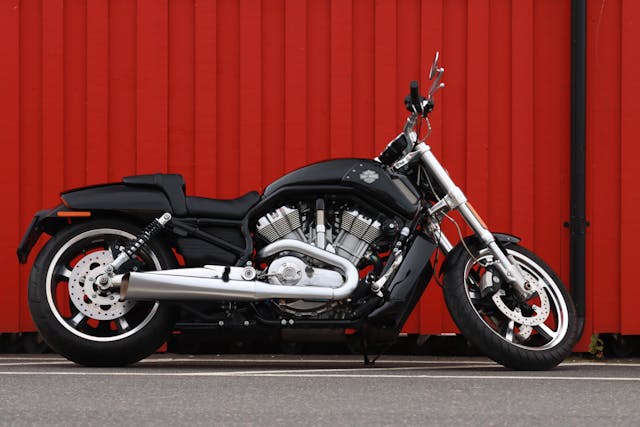
Electric bikes (or e-bikes) have become increasingly popular as a modern mode of transport. Combining the convenience of an electric motor with the familiar feel of a bicycle, e-bikes are perfect for anyone who wants to ride longer distances or reduce the effort required for cycling. This article explores the pros and cons of electric bikes, helping you decide if owning an electric bike is right for you. Whether you’re considering an e-bike as a second car alternative or want to improve your commute, this guide is packed with well-informed insights.
What Is an Electric Bike?
An electric bike is a bicycle equipped with an electric motor to assist while pedalling. Unlike a conventional bike, it makes cycling easier by reducing the effort required, thanks to motor assistance. Riders still need to pedal, but the assistance provided allows them to travel longer distances and tackle steep inclines with less effort.
Most e-bikes have a maximum speed of around 20 miles per hour, making them a great mode of transport for short distances or urban commutes. Popular categories include pedelecs, which require pedalling for motor assistance, and throttle-based e-bikes that operate without pedalling.
Advantages of Electric Bikes
E-bikes come with many advantages for riders, including:
- Ease of Use: The motor and battery make it easier to handle difficult terrain, hills, or windy conditions.
- Eco-Friendly: As a mode of transport, they produce zero emissions, aligning with growing environmental consciousness.
- Cost Savings: Compared to a car, e-bikes don’t have to pay for gas or parking, making them more affordable in the long run.
- Convenience for Commutes: An e-bike gives riders the flexibility to commute to work efficiently without arriving exhausted.
- Added Benefit of Exercise: While they offer motor assistance, e-bikes still require some level of pedalling, providing moderate physical activity.
Disadvantages of E-Bikes
While e-bikes have many benefits, it’s important to consider the disadvantages of e-bikes:
- Higher Cost: Purchasing an electric bike can be significantly more expensive than a conventional bicycle. The technology involved, including the electric motor and battery, drives up the price.
- Expensive to Repair: Components like batteries are expensive to repair or replace, especially when compared to a regular bike.
- Weight: E-bikes are heavier, often exceeding 20 kg, making them harder to carry or transport when not in use.
- Battery Dependence: If you run out of battery, the rider may need to pedal a much heavier bike, requiring more effort.
Read More: Are Electric Scooters Eco-Friendly?
Are Electric Bikes Environmentally Friendly?
One of the most significant benefits of e-bikes is their eco-friendliness. Unlike cars or motorbikes, they do not emit harmful gases, making them an environmentally friendly option. However, the production of batteries and their eventual disposal pose some environmental concerns. Despite this, using an e-bike as a daily mode of transport can significantly reduce your carbon footprint.
E-Bikes Vs. Regular Bikes
When comparing electric bikes compared to regular bikes, the differences are clear:
- Effort Required: E-bikes require less effort, making them ideal for riders who want to cover longer distances or have physical limitations.
- Speed: E-bikes allow you to go faster due to their electric motor, which assists during rides.
- Cost: While the initial electric bike cost is higher, they provide savings in fuel and maintenance costs compared to a second car.
However, for those seeking a more intense cycling experience, a regular bicycle might be a better fit.
Cost of Owning and Maintaining an Electric Bike
The cost of owning an electric bike includes not just the purchase price but also maintenance expenses:
- Initial Cost: E-bikes are more expensive than conventional bicycles due to their advanced components like the motor and battery.
- Battery Replacement: Like other battery-powered devices, e-bikes may require battery replacements over time, adding to the cost.
- Repairs: Specialized components are often expensive to repair, requiring expertise not needed for traditional bikes.
Despite these costs, e-bikes are still an affordable alternative to cars for short to medium commutes.
E-Bikes for Commutes and Longer Distances
E-bikes are ideal for commuting to work and travelling longer distances. Riders benefit from:
- Assistance for Longer Journeys: The electric assist feature reduces fatigue, making it possible to ride comfortably for extended periods.
- Urban Mobility: For short commutes in cities, e-bikes are faster and more convenient than cars or public transport.
- Avoiding Traffic: E-bikes allow riders to bypass congested roads, saving time during peak hours.
Physical Activity on an Electric Bike
One concern about using an e-bike is the potential reduction in physical activity. However, the amount of physical effort required depends on the level of assistance selected by the rider. For those looking to maintain their fitness:
- Moderate Exercise: Using an e-bike still involves pedalling, which promotes cardiovascular health.
- Customized Workouts: Riders can adjust motor assistance to increase or decrease the amount of effort needed, tailoring the experience to their fitness goals.
Read More: What Is EV Smart Charging?
Technological Advances in E-Bikes
The world of e-bikes is constantly evolving, with technological advances enhancing their performance and usability:
- Improved Batteries: Modern e-bikes come with lighter, longer-lasting batteries, extending their range and making them easier to handle.
- Smart Features: Connectivity with smartphones allows riders to track routes, battery levels, and performance metrics.
- Versatile Designs: E-bikes now cater to various needs, from mountain bikes to foldable models for urban commuters.
Is an Electric Bike Right for You?
Deciding whether an e-bike is right for you depends on your needs and lifestyle. Consider:
- Purpose: Are you looking for a commuter-friendly mode of transport, or do you want to improve your overall cycling experience?
- Cost: Evaluate whether the initial investment and potential maintenance costs fit your budget.
- Usage: If you plan to use it regularly for commuting or leisure, an e-bike can provide both convenience and value.



